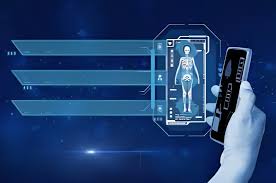Healthcare is undergoing a digital transformation, with software development at the forefront of this revolution. From improving patient care to streamlining hospital operations, healthcare software development has unlocked numerous possibilities. As medical needs evolve, so does the demand for innovative technologies that ensure efficiency, accuracy, and convenience.
In this blog, we’ll explore the top trends shaping healthcare software development, highlight its key benefits, and discuss how partnering with a healthcare development company can help organizations stay ahead in this competitive landscape.
Top Trends in Healthcare Software Development
1. Telemedicine Solutions
Telemedicine has become a cornerstone of modern healthcare. It enables patients to consult doctors remotely, eliminating the need for in-person visits. With video conferencing, chat features, and digital prescriptions, telemedicine applications ensure accessibility for patients, especially those in rural or underserved areas.
For instance, platforms like Teladoc Health have gained immense popularity for their ease of use and wide reach.
2. AI and Machine Learning in Diagnostics
Artificial intelligence (AI) and machine learning are redefining diagnostics. AI-powered tools analyze medical images, predict patient outcomes, and assist in early disease detection. These innovations reduce human error and provide faster results.
One notable example is Google's DeepMind, which has been instrumental in developing AI models to detect diseases like diabetic retinopathy.
3. Wearable Health Devices Integration
Wearable devices like fitness trackers and smartwatches are no longer just lifestyle accessories. They now play a crucial role in healthcare by monitoring vital signs, tracking sleep patterns, and detecting irregular heart rhythms. Software development focuses on integrating data from these devices with centralized health records to give doctors real-time insights.
4. Blockchain for Data Security
Healthcare data breaches are a significant concern. Blockchain technology offers a secure way to store and share patient information. By decentralizing data and ensuring tamper-proof records, blockchain enhances patient trust and compliance with regulations like HIPAA.
5. Cloud-Based Healthcare Systems
Cloud computing has become essential for storing vast amounts of patient data securely and accessibly. Cloud-based and DevOps-based healthcare systems enable seamless collaboration between healthcare providers, making patient data available in real time. Additionally, they reduce costs associated with maintaining on-premise infrastructure.
6. Personalized Healthcare Applications
Patients today demand a more personalized approach to healthcare. Mobile apps that track individual health metrics, provide medication reminders, and offer tailored wellness advice are gaining traction. These applications enhance patient engagement and improve treatment adherence.
Key Benefits of Healthcare Software Development
1. Improved Patient Care
Healthcare software bridges the gap between patients and providers. Tools like electronic health records (EHR) ensure that doctors have access to comprehensive patient histories, leading to accurate diagnoses and effective treatment plans.
2. Enhanced Operational Efficiency
Hospitals and clinics often struggle with managing administrative tasks. Software solutions streamline appointment scheduling, billing, and inventory management, saving time and reducing errors. This allows healthcare providers to focus more on patient care.
3. Cost Reduction
Automating processes through healthcare software significantly reduces operational costs. For example, telemedicine platforms eliminate the need for physical infrastructure, while AI tools cut down on expensive diagnostic tests by providing quicker results.
4. Data-Driven Decision Making
Advanced analytics tools empower healthcare providers to make informed decisions. By analyzing trends and patterns in patient data, they can identify potential health risks early and tailor treatments accordingly.
5. Improved Patient Engagement
Healthcare software applications often include features like appointment reminders, medication trackers, and health tips. These tools keep patients actively involved in their care journey, leading to better outcomes.
6. Compliance with Regulations
Healthcare software ensures that organizations adhere to industry standards and legal regulations. Features like automated compliance checks help avoid costly penalties and maintain trust with patients.
How a Healthcare Development Company Can Help
Partnering with a specialized healthcare development company ensures access to cutting-edge technology and industry expertise. These companies understand the unique challenges of the healthcare sector and can deliver customized solutions to meet specific needs.
For example:
- They can develop EHR systems tailored to your organization’s workflows.
- They offer scalable telemedicine platforms that grow with your practice.
- They provide robust cybersecurity measures to protect sensitive patient data.
If you’re looking for a trusted partner, consider companies with proven experience in healthcare software. Look for reviews, case studies, and certifications to ensure you’re making the right choice.
Challenges in Healthcare Software Development
Despite its advantages, healthcare software development comes with challenges:
- Data Privacy Concerns: Managing sensitive patient information requires strict compliance with regulations.
- Interoperability Issues: Ensuring seamless integration between different systems can be complex.
- High Initial Investment: Developing advanced software solutions often requires significant upfront costs.
However, these challenges can be mitigated by working with experienced developers and adopting agile methodologies.
Future of Healthcare Software Development
The future of healthcare lies in predictive analytics, IoT-enabled devices, and virtual reality (VR) for medical training and therapy. With continued innovation, we can expect even more advanced tools that cater to evolving patient needs and healthcare standards.
Governments and private organizations are increasingly investing in healthcare IT, ensuring a steady stream of funding for research and development.
Conclusion
Healthcare software development is revolutionizing the way we approach medical care. From improving patient outcomes to streamlining operations, its impact is undeniable. By embracing trends like AI, telemedicine, and blockchain, healthcare providers can deliver superior services while staying competitive.
To make the most of these advancements, partnering with a reliable healthcare development company is crucial. Whether you’re a hospital, clinic, or healthcare startup, leveraging the expertise of skilled developers can set you apart in this rapidly evolving industry.
By integrating innovative software solutions into your operations, you’re not just keeping up with trends—you’re shaping the future of healthcare.





Comments